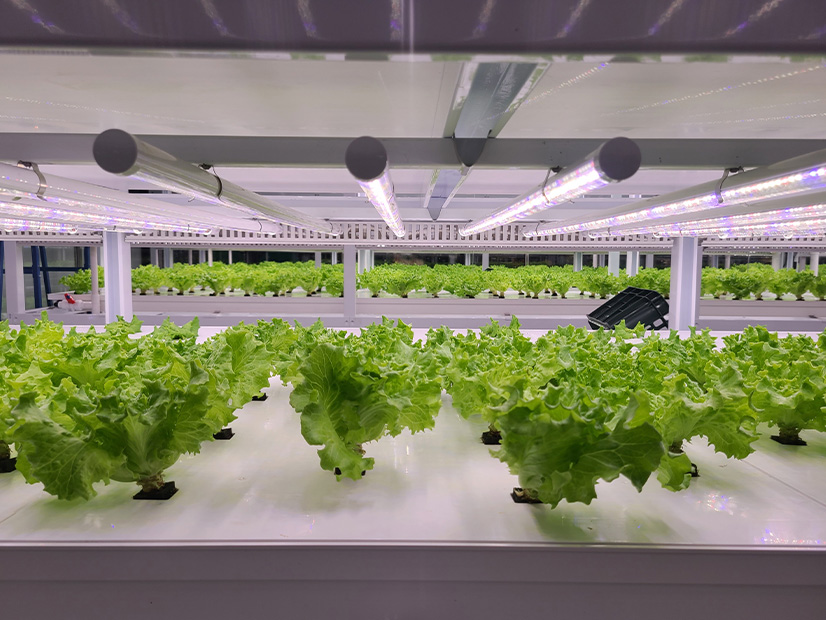
Investor interest is growing in the U.S. for climate-smart agriculture (CSA) systems that reduce food loss and the emissions associated with it, according to Hans Tung, managing partner at GGV Capital.
CSA enables companies to predict supply and demand so they can avoid food waste, Tung said Wednesday during a Center for Strategic and International Studies panel on food technology.
The U.S. Department of Agriculture estimates that up to 40% of the U.S. food supply is wasted, and EPA estimates that the annual greenhouse gas emissions from that waste is equal to the annual emissions of 42 coal-fired power plants.
GGV has a history of investing in climate-tech, with its smart food systems investments totaling $4 billion last year.
U.S. food-tech companies saw $16.6 billion in total funding in 2021, according to Tung. “There’s no question there will be more investments coming to this area, because there are a lot more teams that are doing good things in this space.”
In 2017, GGV invested in Bowery Farming, a company that Tung said “is extremely impressive at taking vertical farming technologies and making them commercially viable.”
Tung described Bowery as a “unicorn,” a term used in VC investing for a startup valued at more than $1 billion. The New York-based company secured $300 million in funding in May, bringing its total value to $2.3 billion, according to a press statement. The challenge, Tung said, is to make Bowery’s business model commercially viable in more places.
Bowery is the largest indoor vertical farming company in the U.S., according to Chief Marketing Officer Katie Seawell. It has two operating farms in New Jersey and one in Maryland.
“We are taking non-arable land and turning it into highly productive farmable land,” she said during the panel discussion. “We are typically refurbishing warehouses, stacking crops floor to ceiling; and we use LED light to mimic the spectrum of the sun.”
Technology is at the core of the company’s growing process, which integrates sensors, machine vision, robotics and data into operations. The company’s proprietary farming design “constantly” monitors crop needs to “unlock quality, yield and flavor in a way that … is next-level in terms of produce,” Seawell said.
Bowery’s business model focuses on building local, vertical farms that will network and scale, which Seawell says reduces food-miles and, therefore, transportation emissions. In addition, the company’s operations help address food waste by reducing the time from harvest to store to between 48 and 72 hours, which extends produce shelf life for retailers and customers, she said.
The company’s ability to use data to map demand in the marketplace will become “more precise,” Seawell said. Retailers will no longer “have a glut of produce or food,” which “reduces food waste and, ultimately, carbon emissions.”
Global Initiative
The agricultural sector needs “more tools” to lower the cost of addressing climate change, according to David Livingston, senior adviser in the Office of the U.S. Special Presidential Envoy for Climate.
“The only way to do that is by investing more in innovation,” he said during the panel discussion.
Livingston is part of the team behind the Agriculture Innovation Mission for Climate (AIM4C) officially launched in November by the U.S. and the United Arab Emirates during the U.N. Climate Change Conference in Glasgow, Scotland (COP26). The initiative launched with 33 countries and 48 nongovernmental partners to mobilize a $4 billion investment in global agriculture innovation.
AIM4C recognizes “that the agriculture sector has been neglected in climate conversations,” Livingston said. “If we’re successful with this [five-year] initiative, when you think about climate-tech, you’ll think not just about solar panels, wind farms and Teslas, but you will also think about the food-tech and ag-tech of the future.”
The initiative aims to drive more government spending to food-tech.
During AIM4C’s first ministerial meeting last month, its partners committed to doubling the original funding commitment to $8 billion before the next climate change conference (COP27) in Sharm el-Sheikh, Egypt, this fall. The initiative also announced new focus areas for public-private partnership that include methane, small farm solutions, emerging technologies and nature-based solutions.


